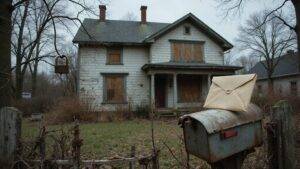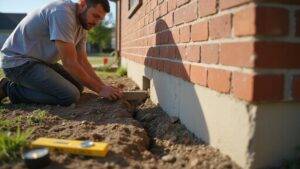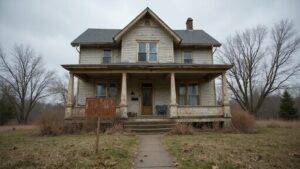Many homeowners worry when their property does not sell within the expected timeframe. An expired listing can make your home seem less desirable to buyers. This issue can be stressful and may affect your financial plans.
When a home sits unsold, buyers may think something is wrong. They may suspect the price is too high or there are hidden problems. This can lead to fewer offers and lower sale prices.
Expired listings often lower a home’s value by making buyers think twice about your property. But you can avoid this by learning what causes expired listings and taking the right steps. A new approach can help you protect your home’s value. This blog will guide you through proven strategies to avoid expired listings and keep your home’s value strong.
Key Takeaways
- Expired listings often create a negative stigma, signaling to buyers that the home may have hidden issues or is overpriced.
- Homes that expire and are re-listed typically attract fewer showings and remain longer on the market, reducing perceived value.
- Extended days on market from an expired listing can lead to lower offers and decreased final sale price.
- Buyers gain negotiation leverage with expired listings, often resulting in requests for price reductions, repairs, or seller concessions.
- Overpricing and poor marketing that cause expirations force sellers to relist at lower prices, eroding home value and competitiveness.
Understanding What an Expired Listing Is
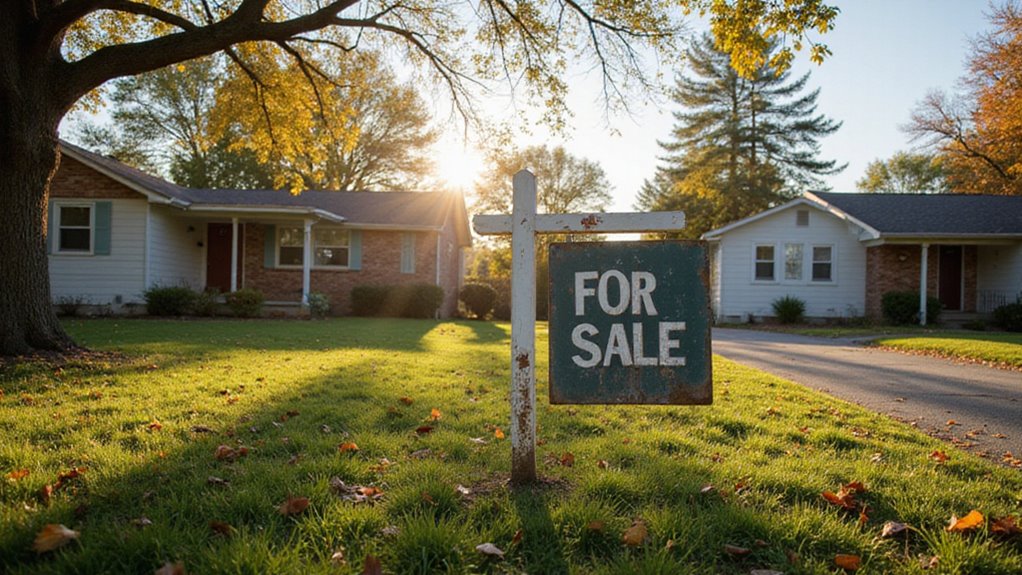
An expired listing is a property that did not sell during the agreed contract period. The listing status changes to expired on the MLS when the home remains unsold. This means no buyer made an acceptable offer before the deadline.
Expired listings often happen if the price was too high or the home was not presented well. Sellers and agents should review the market and buyer comments to find out what went wrong. In some cases, properties with issues like asbestos disclosure may face additional challenges that affect buyer interest and pricing. If a new plan uses better pricing or staging, the home may attract more buyers.
Homes with flexible pricing and good staging usually sell faster. If you notice your listing is about to expire, you should act quickly to adjust your strategy. Recognizing an expired listing helps protect your property’s value in the market. Before relisting, it’s also important to review the contract terms to avoid any legal or procedural issues that could further delay the sale.
Common Reasons Listings Expire
Listings often expire because of common mistakes. Overpricing is the main reason; buyers avoid homes that cost too much. If the price does not match the market, the property stays unsold. Overpricing is the top reason listings expire—homes that cost too much for the market tend to remain unsold.
A home needs a good price strategy. Sellers should lower the price if buyers show little interest. Not adjusting to market feedback can stop a sale. Sometimes, listings are affected by co-ownership rules, which can complicate the selling process and delay the sale.
Poor staging can also hurt your chances. Buyers may lose interest if the home is messy or unattractive. Improving staging helps buyers see the home’s potential.
Marketing is important for selling. If a listing lacks photos or has few showings, fewer buyers will notice it. Sellers should offer flexible showing times and clear, high-quality photos.
Homes that need repairs may not sell. Buyers may skip a house if it looks like too much work. Addressing repairs can make a big difference.
If sellers fix these issues, they have a better chance of selling. A well-priced, well-presented home attracts more buyers. Good marketing and repairs help listings sell faster. Sellers who consider selling a house as-is may appeal to investors or buyers seeking a project, especially if repairs are too costly to complete before listing.
Buyer Perceptions of Expired Listings
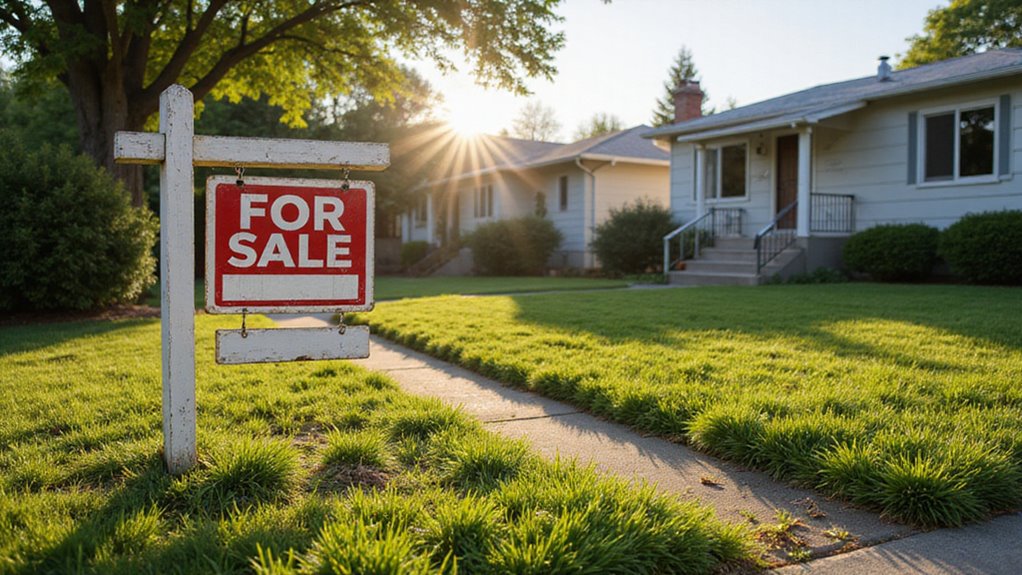
When you encounter an expired listing, you often interpret it as a signal of market stagnation or underlying property concerns. Data shows buyers frequently assume there are unresolved issues or pricing misalignments, which can erode perceived value. This perception gives you increased negotiation advantage, as sellers may be more motivated to accept concessions to re-engage the market.
Buyers may also be wary if they suspect undisclosed issues, such as mold disclosure requirements, which can further impact their willingness to pay the asking price. Working with a family-owned local business that understands the challenges of expired listings can help both buyers and sellers navigate these situations with greater transparency and ease.
Signals of Market Stagnation
Expired listings in a neighborhood often signal market stagnation. Buyers see unsold homes as a sign of weak demand. They may assume that prices are too high or marketing is lacking.
If there are many expired listings, homes usually take longer to sell. Buyers might worry about paying too much in such areas. They often use this to negotiate lower prices.
A high number of expired listings can reduce buyer urgency. This can lower the perceived value of all homes nearby. If not addressed, it may even push overall prices down.
Assumptions About Property Issues
Expired listings often make buyers think there are problems with the property. A home that does not sell can raise doubts. Buyers may worry about hidden defects or poor maintenance.
Some buyers might question the property tax amount or wonder if high taxes made the home hard to sell. They may also look at the neighborhood and notice if there are few parks, schools, or stores nearby. Limited amenities can lower buyer interest.
Industry surveys show over 60% of buyers are cautious about expired listings. Many expect issues with the home’s structure, layout, or legal compliance. These concerns can lower how much buyers think the home is worth.
If you plan to relist, address possible worries before showing the home again. Provide clear information and full disclosures. This can help build trust and attract more buyers.
Negotiation Leverage for Buyers
Expired listings often give buyers stronger negotiation power. Sellers are usually more motivated after their property fails to sell. This situation lets buyers ask for better terms.
Buyers can request that sellers pay for some closing costs if the listing has expired. If you find any issues in property disclosures, you can ask for repairs or credits. You can also use the long time on the market to support a lower offer.
If you use these strategies, you can get a better deal on an expired listing. Data shows that these properties often relist at prices 5-10% lower. This makes expired listings a good opportunity for buyers.
The Impact on Negotiation Power
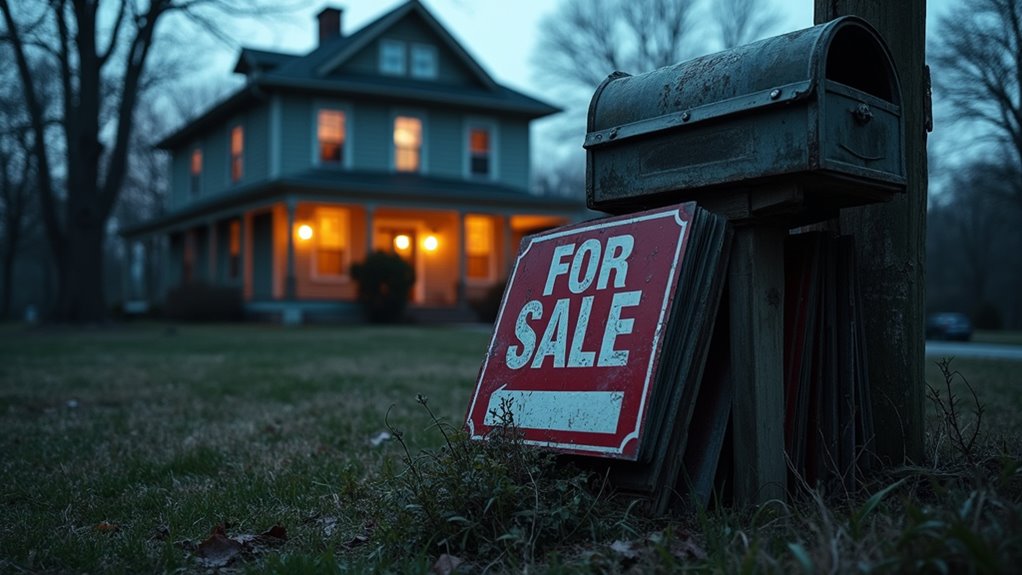
Expired listings usually reduce the seller’s power in negotiations. Buyers often gain an advantage when a property does not sell quickly. If a home stays on the market too long, buyers may sense urgency from the seller. Expired listings weaken a seller’s negotiating position, giving buyers more leverage when a home lingers unsold on the market.
Buyers may then offer lower prices or ask for extra benefits. Sellers, hoping to avoid another failed listing, often accept these requests. This shift makes buyers more confident during negotiations. Sellers facing this situation in Florissant, MO, may benefit from zero fees or commissions when selling to a reputable cash home buyer, which can make the process less stressful and financially advantageous.
The table below shows how leverage changes in different situations. Seller power is highest with new listings but drops if the property sits unsold or is relisted. Buyer power grows as the property remains on the market or gets a price cut.
When sellers consider alternatives like fair cash offers from local home buyers, they may regain some negotiating leverage by avoiding the risks of repeated expired listings.
Stigma and Reduced Market Appeal
When your listing expires, buyers often perceive the property as undesirable, which can erode its market appeal. This stigma shifts influence toward buyers, as they assume there’s underlying value or condition issues. Data consistently shows that expired listings typically attract lower offers and face longer days on market upon relisting.
Sellers can avoid this negative impact by considering fair cash offers from local buyers, which eliminate the need for repairs and help bypass market stigma. Working with trusted local investors also means you can avoid complex processes and costly commissions, making the sale more straightforward and stress-free.
Perceived Property Undesirability
Expired listings often make people think a property has problems. This can make a home seem less appealing to buyers. If your home does not sell, buyers may look elsewhere.
Buyers might believe there are hidden issues, a high price, or poor maintenance. These assumptions can lower trust in your property. Fewer buyers may be willing to view or consider your home.
If the home is relisted, it usually gets fewer showings and stays on the market longer. This happens more with luxury or rural properties. Smaller groups of buyers and higher expectations make the impact even greater.
Buyer Negotiation Leverage
Expired listings give buyers more power during negotiations. If a property does not sell, buyers may think there is a problem. This suspicion lets buyers offer lower prices and ask for more concessions.
Data shows that homes relisted after expiring usually sell for 5–10% less than the original price. Buyers often use the long market time to push for discounts and repairs. They may also request credits or upgrades, knowing the seller wants to close.
If you are selling an expired listing, defending your price becomes hard. Even luxury features or a great location may not help. Buyers know the seller’s position is weaker, so they gain the upper hand.
How Pricing Contributes to Expiration

Pricing affects whether a property will expire on the market. If a home is not priced correctly, it may not sell. Accurate pricing is needed to attract buyers and avoid expiration. The right price is essential—homes that aren’t priced correctly risk sitting unsold and eventually expiring on the market.
Overpricing limits online searches because buyers set price filters. A high price compared to similar homes makes a property seem less appealing. Buyers may think the seller is not flexible. Sellers who want to avoid these issues can benefit from fair cash offers that reflect the true value of the home and speed up the selling process.
Market analysis helps find the right price. This means looking at recent sales, current listings, and how quickly homes are selling. A price based on real data draws in interested buyers.
Proper pricing creates urgency and can lead to multiple offers. If the price is right, the listing is less likely to expire. Setting the correct price is key to selling a home.
In some cases, if a home does not sell, an owner may consider alternatives like selling without an agent to receive a fair cash offer quickly and avoid further delays.
The Role of Marketing in Listing Success
Marketing plays a key role in selling your home quickly. It helps your listing reach buyers who are ready to purchase. Without strong marketing, even a well-priced home may not sell fast.
Data shows homes with digital marketing sell 32% faster than those with basic advertising. Open houses work best when held during busy times and promoted online. Digital invitations can encourage more buyers to visit. For sellers in St. Charles County, working with buyers who offer fair cash offers can enhance the appeal of your home and increase your chances of a quick sale.
Social media and email campaigns help more people see your listing. These tools attract buyers who may not find your home otherwise. If you skip these steps, your home may stay on the market longer.
A good marketing plan should match your pricing strategy. If both work together, your home is more likely to sell on time. This approach also helps keep your home’s value high.
Working with a family-owned local business that understands the market can give your listing extra exposure and professional support for a faster, smoother sale.
Effects of Poor Listing Photos and Descriptions
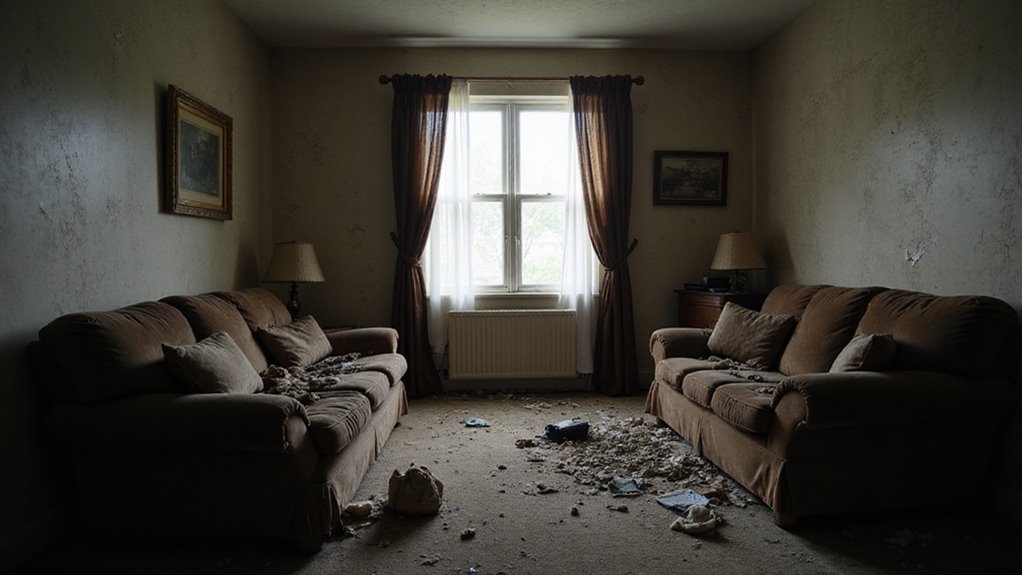
Poor listing photos and weak descriptions make homes less appealing to buyers. Buyers want clear photos and detailed, honest information. If listings lack these, homes may stay unsold longer and lose value.
Low-quality photos make properties look unattractive, reducing buyer interest. Dark or blurry images can cause buyers to skip your listing. Proper lighting and sharp images are essential for strong curb appeal.
Generic or vague descriptions do not highlight important features. Listings must explain special qualities and benefits to attract attention. If descriptions are unclear, buyers may not see the property’s true value.
If your listing does not stand out, it may sit on the market longer. Extended time on the market often leads to price drops. Price reductions can make a home appear less desirable to future buyers.
It’s also important for sellers to understand that capital gains tax may apply if a home sells for a profit, depending on factors like length of ownership and residency, which can influence overall selling strategy.
Importance of Timing in the Real Estate Market
You can’t ignore how market peaks, seasonal selling trends, and listing duration directly influence your home’s marketability and final sale price. Data shows properties listed during peak seasons spend less time on market and secure higher offers, while listings that linger risk price reductions and buyer skepticism. Strategic timing isn’t just beneficial—it’s essential for maximizing value and minimizing the risk of an expired listing.
Market Peaks and Lows
Real estate markets go up and down over time. The timing of when you list your property affects sale price and how long it stays listed. If you want the best result, pay close attention to market cycles.
Listing at a market peak means more buyers and higher offers, especially for luxury homes. A downturn makes it harder to sell, and your property may sit on the market longer. Expired listings happen more often when there are many homes for sale and fewer buyers.
Owners of rental properties can use market cycles to plan the right time to sell. If you wait for a peak, you may avoid empty units and lost rent. Proper timing helps reduce the risk of your property not selling.
Seasonal Selling Trends
Seasonal selling trends affect home sales every year. The time of year can change how many buyers are searching and the price you get. Sellers should pay attention to these patterns before listing their homes.
Spring and early summer are usually the busiest times for home sales. If you list your home in May, it may sell for 5-7% more than in winter. Families often want to move before a new school year begins.
Neighborhood activity also changes with the seasons. Some areas have more homes for sale in the summer, which increases competition. If you want to stand out, you must stage your home well during these busy months.
If you adjust your selling plan to match the season, you will likely attract more buyers. Knowing what local buyers want in each season can help you get a higher price. If you use these trends, your home sale can be more successful.
Impact of Listing Duration
Listing duration is the number of days a home stays on the market. Longer listing times often lower the final sale price. Buyers may think a home has problems if it remains unsold for too long.
Homes priced right sell faster and closer to the asking price. If you price too high, buyers may lose interest quickly. Listing your home during busy seasons can help attract more buyers.
A longer time on the market gives buyers more power to negotiate. If your home sits too long, you may need to lower your price. Using the right strategy from the start can help you avoid these problems.
Relisting Strategies After Expiration
When your home listing expires, you need a new plan to sell it. A good relisting strategy addresses why your home did not sell before. This can help you attract new buyers.
Homeowners should review the way their home looks. Professional staging helps homes sell faster than ones that are not staged. Boosting curb appeal and cleaning up inside can make a strong first impression.
If your price was too high, consider lowering it to match local sales. Checking similar homes and neighborhood trends is important. Setting a fair price helps your home compete.
High-quality photos and virtual tours show your home in the best light. These tools can increase attention from buyers online. Better presentation and pricing improve your chances of a successful sale.
Working With a New Agent to Refresh Your Approach
When you partner with a new agent, you’re positioned to re-evaluate your marketing strategy with fresh analytics and proven tactics that align with current market trends. A experienced agent utilizes an expansive professional network, maximizing exposure to qualified buyers and off-market opportunities. This strategic reset can directly impact your home’s days on market and final sale price.
Evaluating Marketing Strategies Anew
A new agent helps you review and improve your marketing plan. Fresh expertise can show why your last listing did not sell. If you want better results, consider these key changes.
A new agent will use up-to-date market data to check if your price is right. Professional photos and home staging can make your listing stand out. Virtual tours may attract more buyers if your last efforts were basic.
Digital marketing should focus where buyers are most active. Traditional marketing like flyers or open houses might help if used correctly. If your old plan missed these steps, your new agent can fill the gaps.
Leveraging Agent Networks
A new agent brings a different network of buyers and real estate professionals. This expanded reach can help your property gain more exposure. Greater exposure can reduce the negative effects of an expired listing.
If you choose a new agent, your home may sell faster. The National Association of Realtors reports homes sell 18% faster with a new agent. This is often due to better marketing and fresh strategies.
A new agent can offer improved staging and high-quality virtual tours. These tools attract more buyers and increase engagement. If your listing looks refreshed, buyers may see it as a new opportunity.
Leveraging a new agent’s network and resources can reposition your home in the market. This approach can help maximize your home’s value. If you want a quicker and more successful sale, consider working with a new agent.
Home Improvements That Can Boost Value
Strategic home improvements can help increase your home’s value. These changes are important if your property did not sell before. Targeted upgrades can attract more buyers and address common concerns.
Curb appeal is very important. New landscaping, fresh paint, or a new front door can make your home stand out. Homes with good curb appeal often sell for more.
Professional staging can also help. Staged homes usually sell faster and may get better offers. If you want a quicker sale, consider hiring a stager.
Kitchen and bathroom updates give high returns. Even small changes, like new fixtures or paint, can make a big difference. These rooms often influence a buyer’s decision.
Leveraging Market Data to Set a Competitive Price
Market data helps you choose the right price for your home. If you study recent sales and available homes, you understand how to price competitively. This approach reduces the chance your home stays unsold.
You should look at days on market, price per square foot, and absorption rates. These numbers show how your home compares to others. If your home is better than average, you can price a bit higher.
Here is a quick comparison of key metrics:
| Metric | Your Home | Market Average |
|---|---|---|
| Days on Market | 35 | 42 |
| Price per Sq. Ft. | $210 | $205 |
| Absorption Rate | 3.5 months | 4 months |
| List-to-Sale Ratio | 98% | 96% |
If your numbers are stronger than the market, you have an advantage. Use this data to choose a price buyers will find fair. A market-based price makes your home more attractive to buyers.
Preventative Steps to Avoid Expired Listings
To avoid expired listings, you need more than just accurate pricing. A proactive and flexible plan is necessary. Good presentation and wide exposure are also important.
Luxury upgrades can help your property stand out if the market is competitive. Smart home features or designer finishes often attract buyers. These improvements may increase your return on investment.
Virtual staging can show a home’s potential and draw more online interest. If most buyers search online, virtual staging becomes even more valuable. High-quality photos and videos help your listing get noticed.
Local absorption rates can guide the best time to list a property. If you launch during a busy market, your chances improve. Analyze local trends before setting your listing date.
Conclusion
If a home listing expires, buyers may assume there are problems with the property or the price. This can lead to lower offers and a longer selling process. If you want to avoid this, it is important to price the home correctly and keep the listing fresh.
If your house does not sell, you could lose up to 10% of its value compared to similar homes. When listings expire, the property can develop a negative reputation in the market. If you want to sell quickly, consider all your options.
If you need to sell fast, we buy houses for cash at Freedom Path Investors. We can help you avoid the stress of an expired listing. Contact us today to get a fair cash offer and move forward with confidence.



